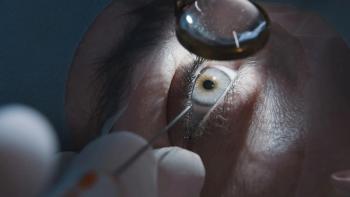
- June digital edition 2024
- Volume 16
- Issue 06
One month, 2 great meetings: An IKA and CIME recap
IKA Keratoconus Symposium and Controversies in Modern Eye Care shone brightly in May.
The International Keratoconus Academy (IKA) was organized around a mission, and the IKA Keratoconus Symposium is a means to that end. CEO and cofounder S. Barry Eiden, OD, FAAO, serves as cochair of the IKA Keratoconus Symposium alongside Andrew S. Morgenstern, OD, FAAO, president and cofounder; and Elizabeth Yeu, MD. Together, they strive to promote professional education and scientific development in keratoconus, bringing the disease front and center for eye care providers around the globe.
The 2nd Annual IKA Keratoconus Symposium convened in Bethesda, Maryland, on May 18 and 19, 2024, with great success. The IKA Keratoconus Symposium is not only an educational experience but a collaborative one, where attendees are encouraged to discuss cases, compare notes, and engage with one another on new data. Conversations around tomography and corneal cross-linking flooded the halls between sessions packed with cutting-edge scientific developments in keratoconus. Here are a few highlights.
Highlights from IKA Keratoconus Symposium
The urgency in keratoconus management
Kourtney Houser, MD, and Kendall Donaldson, MD, MS, give an overview of the important role topography and tomography play in diagnosing keratoconus early in their patients.
Specialty contact lenses with diseased and sick eyes
Christine Sindt, OD, FAAO, talked about her session at the meeting focusing on higher-order aberrations and the correction of complicated optics on scleral contact lenses.
Controversies in Modern Eye Care
With an expanded program designed to foster learning opportunities and connections with colleagues, the 18th Annual Controversies in Modern Eye Care meeting took place at the Hilton Los Angeles/Universal City in California on May 4, 2024. Arjan Hura, MD; Robert Maloney, MD; and Neda Shamie, MD, from the Maloney-Shamie Vision Institute in Los Angeles, California, were the program cochairs of the meeting, which featured panels primed to delve into the nuances of controversial topics in eye care. Here are a few highlights from the meeting.
Confronting Demodex blepharitis with advanced treatment
Marc Bloomenstein, OD, FAAO, discusses how optometrists can proactively manage Demodex blepharitis by regularly examining eyelids, diagnosing the condition early, and offering treatments to effectively eradicate the mites and prevent future complications.
Innovations and interdisciplinary approaches in glaucoma management
Glaucoma treatment development has taken on new mechanism-of-action medications that are designed to treat natural outflow pathway. Deborah Ristvedt, DO, led a session on the topic alongside Inder Paul Singh, MD; Arsham Sheybani, MD; and Melissa Tawa, OD, FAAO, titled “Innovations and Interdisciplinary Approaches in Glaucoma Management—Expanding the Treatment Arsenal.”
Articles in this issue
over 1 year ago
Elevating optometric keratoconus managementover 1 year ago
Selecting a visual field analyzer for the futureover 1 year ago
To retina and beyond: What lies beneathover 1 year ago
Tear evaporation plays role in dry eye diseaseover 1 year ago
Utilizing the immune system to combat dry eye diseaseover 1 year ago
Is race relevant to the case?Newsletter
Want more insights like this? Subscribe to Optometry Times and get clinical pearls and practice tips delivered straight to your inbox.





